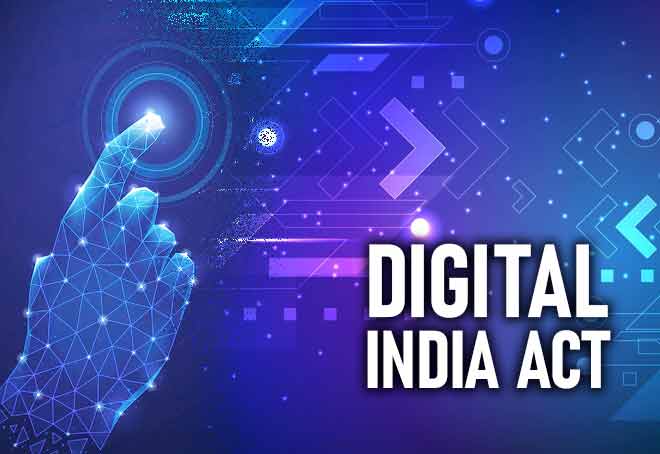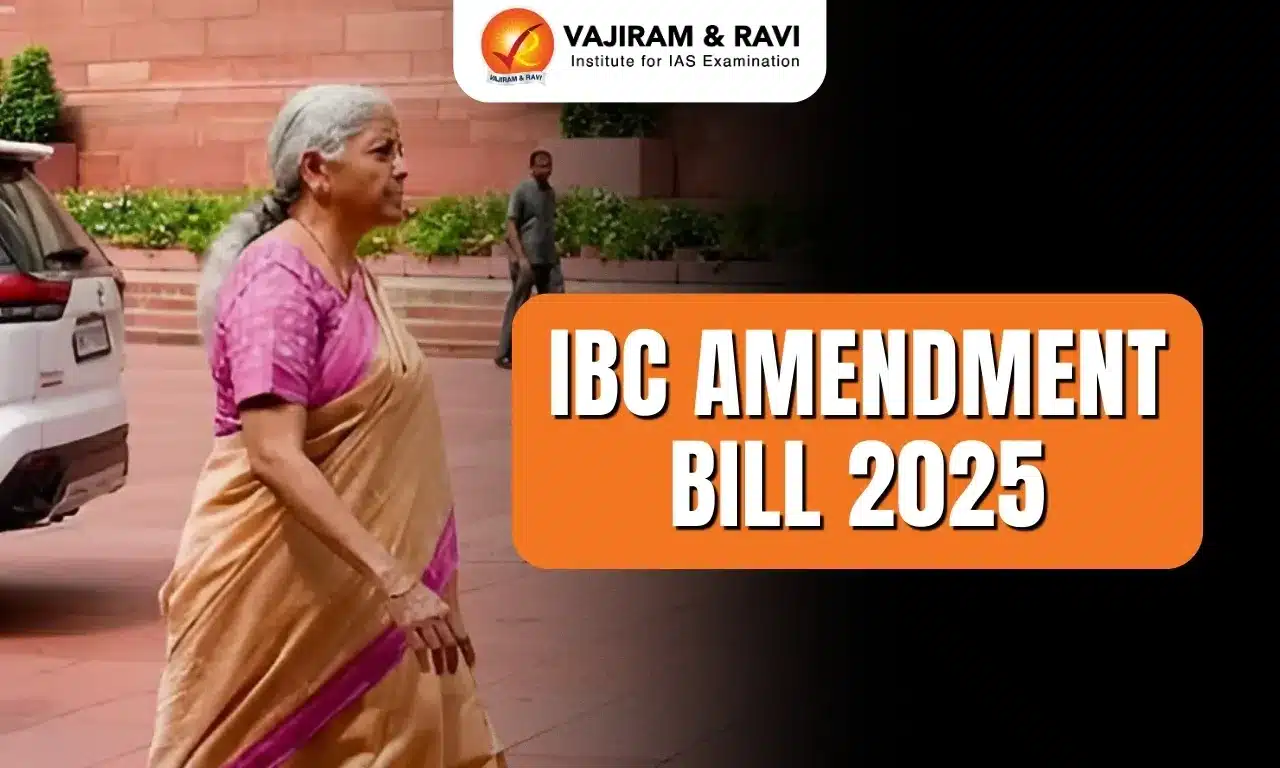What’s in today’s article?
- Why in News?
- Need for the Digital India Act 2023
- Key Provisions of the Digital India Act 2023
- Significance of the Digital India Act 2023
- The Challenges to Implementing Digital India Act 2023
- Way Ahead
Why in News?
- The recent announcement of the Digital India Act 2023 (DIA) represents a significant step towards establishing a future ready legal framework for the country’s burgeoning digital ecosystem.
- This move by the Ministry of Electronics and Information Technology (MEITY) signals a proactive approach to regulating and shaping the digital future of the nation.
Need for the Digital India Act 2023
- The DIA will replace the two decade old Information Technology Act 2000 (IT Act).
- The IT Act was crafted during a time when the internet was in its infancy, and has struggled to keep pace with the rapid changes in technology and user behaviour.
- Since its inception, India’s internet user base has exploded from a mere 5.5 million to a staggering 850 million.
- The nature of internet usage has also evolved, with the emergence of various intermediaries and the proliferation of new forms of user harm, such as cyberstalking, trolling and doxing.
- The DIA recognises these changes and aims to provide a comprehensive legal framework to address them.
- It is designed to address the challenges and opportunities presented by the dramatic growth of the internet and emerging technologies.
- The primary motivation behind the DIA is to bring India’s regulatory landscape in sync with the digital revolution of the 21st century.
Key Provisions of the Digital India Act 2023
- It places a strong emphasis on online safety and trust, with a commitment to safeguarding citizen’s rights in the digital realm while remaining adaptable to shifting market dynamics and international legal principles.
- It recognises the growing importance of new age technologies such as artificial intelligence (AI) and blockchain and provides guidelines for their responsible utilisation.
- It upholds the concept of an open internet, striking a balance between accessibility and necessary regulations to maintain order and protect users.
- It mandates stringent Know Your Customer (KYC) requirements for wearable devices, accompanied by criminal law sanctions.
- It contemplates a review of the “safe harbour” principle, which presently shields online platforms from liability related to user generated content, indicating a potential shift in online accountability standards.
Significance of the Digital India Act 2023
- The provisions underscore the proposed DIA’s commitment in addressing the complexities of the digital age.
- It aims to not only encourage the adoption of the new age technologies but also to ensure that their deployment is in line with ethical-legal principles, data privacy principles and mechanisms for accountability.
- This means that the DIA does not just leave it to the market to dictate the course of these technologies but actively engages in shaping their development and use within a regulatory framework.
- And by doing so, the DIA strikes a balance between fostering innovation and safeguarding against potential harms.
- This forward-looking stance is not only beneficial for citizens and businesses but also positions India as a responsible player in the global technology landscape – harnessing the full potential of new age technologies while mitigating associated risks.
The Challenges to Implementing Digital India Act 2023
- Potential impact on innovation and the ease of doing business: Stricter regulations, particularly in emerging technologies, could inadvertently stifle entrepreneurial initiatives and deter foreign investments.
- The review of the “safe harbour” principle: It could lead to a more cautious approach among these platforms, possibly impinging on freedom of expression.
- Challenges to effective enforcement: This will require substantial resources, expertise, and infrastructure.
- Balancing the interests of various stakeholders: Including tech giants, while ensuring the protection of citizen rights, poses a significant challenge.
Way Ahead
- While the DIA is a progressive move – ensuring a secure, accountable, and innovative digital future for India, its implementation and potential repercussions warrant vigilant monitoring and adaptability to avoid unintended consequences.
- It represents a forward looking approach to regulation in an age of constant change and has the potential to shape the country’s digital landscape for generations to come.
- As consultations continue, it will be interesting to see how this proposed legislation evolves and plays out in the dynamic digital arena.
Q.1) What is the Digital Personal Data Protection Act (DPDPA) 2023?
The DPDPA shall apply to the processing of Personal Data in India, including both online and digitized offline data, and shall further extend to the processing of such data outside India relating to the offering of goods or services in India.
Q.2) What is the Information Technology (IT) Act, 2000?
The IT Act of 2000 is the primary law in India dealing with cybercrime and electronic commerce. Secondary or subordinate legislation to the IT Act includes the Intermediary Guidelines Rules 2011 and the IT (Intermediary Guidelines and Digital Media Ethics Code) Rules 2021.
Source: How the digital India act will shape the future of the country’s cyber landscape
Last updated on August, 2025
→ UPSC Mains Admit Card 2025 has been released on 14th August at www.upsc.gov.in.
→ UPSC Mains 2025 will be conducted on 22nd August 2025.
→ UPSC Notification 2025 was released on 22nd January 2025.
→ UPSC Calendar 2026 is released on 15th May, 2025.
→ UPSC Prelims Question Paper 2025 and Unofficial Prelims Answer Key 2025 are available now.
→ UPSC Prelims Result 2025 is out now for the CSE held on 25 May 2025.
→ The UPSC Vacancy 2025 were released 1129, out of which 979 were for UPSC CSE and remaining 150 are for UPSC IFoS.
→ UPSC Prelims 2026 will be conducted on 24th May, 2026 & UPSC Mains 2026 will be conducted on 21st August 2026.
→ The UPSC Selection Process is of 3 stages-Prelims, Mains and Interview.
→ UPSC Result 2024 is released with latest UPSC Marksheet 2024. Check Now!
→ UPSC Toppers List 2024 is released now. Shakti Dubey is UPSC AIR 1 2024 Topper.
→ Also check Best IAS Coaching in Delhi















